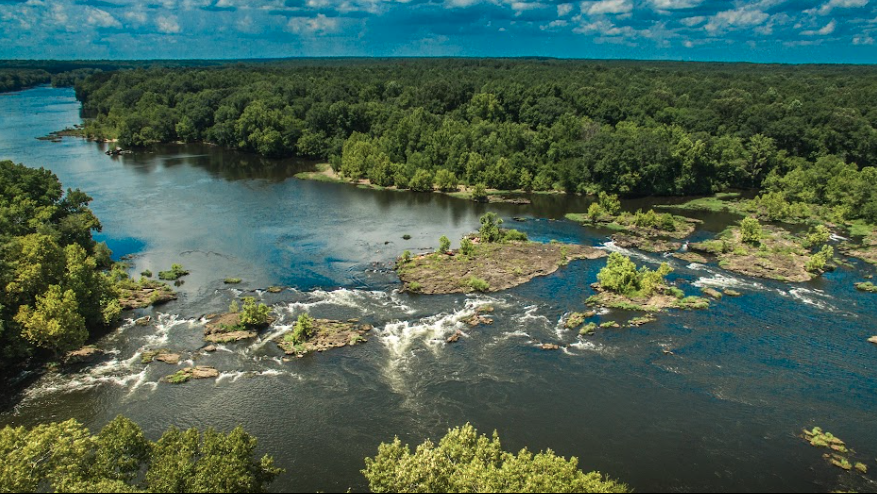Alabama’s Coosa River, impacted by dams, waste and pollution, has been named the fifth most polluted river in the U.S. by the river conservation group American Rivers. Mobile River is the third-most polluted, according to the group.
“While heavily impacted by dams, the Coosa River remains one of the South’s most important rivers for its rich biodiversity. However, the Coosa River and its tributaries are being choked by waste and pollution from massive industrial poultry farms,” the conservatory group says on its website.” The pollution is a significant threat to drinking water and the health and well-being of the river’s communities. The Environmental Protection Agency must demand that state agencies enforce existing Clean Water Act safeguards to protect clean water, fish and wildlife and public health.”
The Coosa River forms in Rome, Georgia and flows 280 miles through Alabama and helps form the Alabama River, then the Mobile River before reaching the Gulf.
“Millions of tons of chicken feces from billions of chickens are a major threat to the Coosa River’s drinking water supply and overall ecosystem health,” reads a report by American Rivers. “The waste is spread on fields, and massive industrial poultry operations discharge their wastewater into municipal sewer systems that are crumbling, where permits are inadequate to protect water quality if they are even enforced at all.”
The report notes that in Gadsden, sewage dumping into the Neely Henry Lake is impacting the Coosa River, and sanitary sewer overflows disproportionately impact Black and low-income residents by making roads inaccessible and waterways unsafe for fishing, swimming and recreation.
The river protection group is asking the Environmental Protection Agency Region 4 Administrator to acknowledge the severity of the problem on the Coosa River and “immediately work with Alabama and Georgia to address the regulatory gaps surrounding the transport, land application, enforcement and environmentally responsible handling of feces of billions of chickens.”
“EPA must also demand that Alabama Department of Environmental Management adopt and enforce permits that abide by the established “pollution budgets” and update existing permits to comply with these limits,” the report continues.
Coosa Riverkeeper, a nonprofit that works to restore the Coosa River, found that data self-reported by industry indicated more than 1.5 million pounds of toxic chemicals were dumped into the river in 2017.
“Of that amount, about 858 pounds are known carcinogens,” Coosa Riverkeeper’s report reads.
“Despite the level of harm to both wildlife and human health, most of the releases included on the Toxic Release Inventory are technically legal,” said Coosa Riverkeeper’s Steven Dudley. “Even though this information is publicly available, the government makes little to no effort to inform the public about theses toxins in our waterways. At Coosa Riverkeeper we believe that people have the right to know what’s in the water that they are drinking, fishing, and swimming in.”
The Mobile River is threatened by coal ash stored alongside by Alabama Power, according to the report.
“A haven of biodiversity, the Mobile River watershed accounts for fourteen percent of all freshwater flowing in the U.S. However, the river is threatened by a leaking coal ash pond at Alabama Power’s Plant Barry, which contains more than 21 million tons of toxic coal ash,” the report reads.
The river protection group said pollution from the coal ash pit threatens the health and well-being of the Mobile-Tensaw Delta, Mobile Bay, the historic African-American community of Africatown, the City of Mobile and the Port of Mobile.
Alabama Power has maintained that storing the coal ash where it sits is safer than transporting it elsewhere. Critics of the company’s plan say doing so could result in disaster if breaches occur.





















































